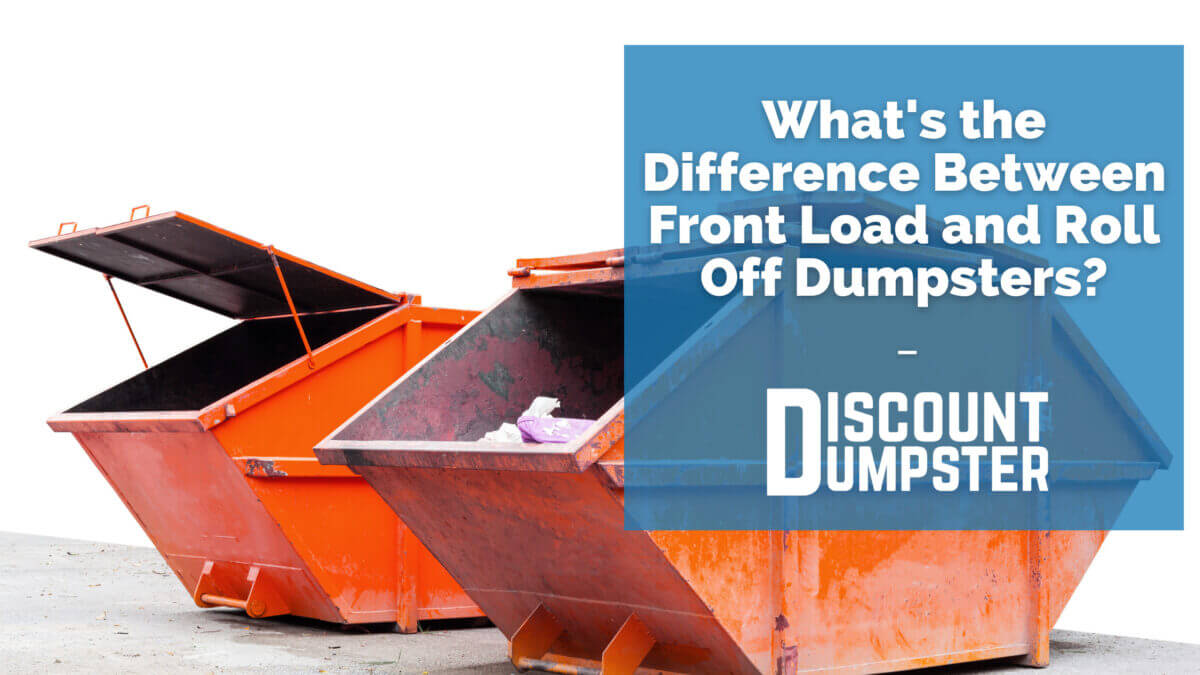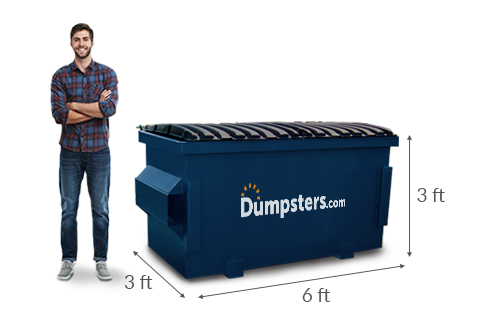Dumpster service is an essential element of different projects, from home restorations to massive building, needing a complete understanding of the procedure to prevent expensive mistakes and ensure effective task implementation. Picking the right dumpster size, recognizing rental costs, and taking into consideration logistics and regulations are crucial action in the process. Furthermore, knowing what can and can not go in a dumpster, preparing the site for distribution, and acquiring necessary permits are essential components of a successful dumpster rental experience. By grasping these essential ideas, you'll be well on your means to a stress-free job, and a much deeper exploration into the information will certainly reveal even more beneficial insights.
Choosing the Right Dumpster Size
Typically, house owners and service providers alike take too lightly the value of choosing the right dumpster size for their job, which can cause costly consequences
This oversight can result in a dumpster that is either too tiny, leading to multiple journeys to the garbage dump, or also big, losing valuable space and resources.

To stay clear of these problems, it's essential to precisely estimate the volume of waste your project will certainly generate.
Consider the sort of materials you'll be throwing away, the size of the location being renovated, and the period of the project.

A basic general rule is to overestimate by 10-20% to represent unexpected waste
Understanding Dumpster Rental Costs
Several aspects add to the overall cost of dumpster rental, making it important to understand the pricing structure to budget plan precisely for your project.
The size of the dumpster is a substantial factor, as bigger dumpsters require even more materials and labor to manufacture and deliver. The kind of particles you intend to deal with also impacts the price, as hazardous materials or hefty construction waste might need special handling and disposal procedures.
Additionally, the rental duration, location, and neighborhood policies can affect the last expense. Some dumpster rental firms may charge extra for services like same-day delivery, weekend break shipment, or added pickups.
Others might supply discounts for long-term services or packed services. To get an accurate estimate, it's essential to provide comprehensive information about your project and requirements.
Be certain to inquire about any kind of additional fees or fees when requesting a quote to stay clear of surprises on your last bill.
Dumpster Rental Period and Logistics
When planning a dumpster rental, it's just as essential to ponder the logistics of the rental period, as this can considerably impact the total success of your task. This consists of establishing the perfect rental period, which generally ranges from a few days to several weeks or perhaps months, depending upon the extent of your project.
It's vital to choose a rental period that straightens with your project timeline to guarantee you have sufficient time to complete the task without incurring additional fees
Additionally, think about the logistics of dumpster delivery and pickup Will the dumpster be supplied to a particular place, such as a driveway or building and construction site? Are there any type of access restrictions or unique needs for the delivery and pick-up process?
Understanding these details will certainly help you intend as necessary and stay clear of any kind of potential issues or delays.
Lastly, make certain to inquire about the rental business's policies regarding dumpster relocation, if required, and any type of added fees connected with prolonging the rental period.
Permits and Rules to Consider
The neighborhood https://piedmonttriaddumpsters.com/about/ metropolitan landscape is dotted with rules and laws regulating waste management, and your dumpster rental project is no exception. Prior to you begin, it's important to understand the permits and regulations that apply to your specific task. Failure to abide can cause penalties, project delays, and even termination.
Some communities require permits for dumpster placement on public or private property. These permits usually feature particular standards for dumpster dimension, positioning, and duration. Furthermore, particular types of waste, such as hazardous materials or construction particles, might go through unique regulations.
It's necessary to study and recognize the local regulations and permits required for your job. Your dumpster rental supplier might have the ability to offer guidance or aid in acquiring the needed permits.
Be sure to consider the time and cost of permits right into your project timeline and budget plan. By doing so, you can ensure a smooth and compliant dumpster rental experience.
What Can Go in a Dumpster
Understanding what can be disposed of in a dumpster is crucial to a successful waste monitoring project Recognizing what can and can not go in a dumpster assists avoid contamination, decreases the threat of fines, and guarantees a smooth job execution.
Most dumpsters can accommodate a variety of materials, consisting of construction debris, household trash, lawn waste, and demolition products. Nevertheless, there are specific things that are prohibited from being thrown away in dumpsters, such as hazardous waste, electronic devices, batteries, and fluorescent light bulbs.
Additionally, some products may need special handling, like appliances, tires, and bed mattress, which might sustain added fees.
It's essential to check with your dumpster rental carrier for specific guidelines on what can be thrown away in their dumpsters. They can provide you with a considerable list of acceptable and restricted products, seeing to it that you remain in compliance with local regulations and guidelines.
Preparing for Dumpster Delivery
Site prep work is essential for a smooth dumpster distribution experience. Before the dumpster shows up, make certain the delivery area is clear of any obstacles, including cars and trucks, trees, and power lines.
A flat, degree surface is essential for secure and effective positioning. In addition, ensure the course to the delivery site goes to the very least 10 feet broad to suit the dumpster truck.

Measure the space where the dumpster will certainly be put to verify it fits comfortably. Consider the dumpster's dimensions, including its length, size, and elevation, as well as the swing distance of the vehicle's arm.
If you're unsure, talk to your dumpster rental provider for guidance.